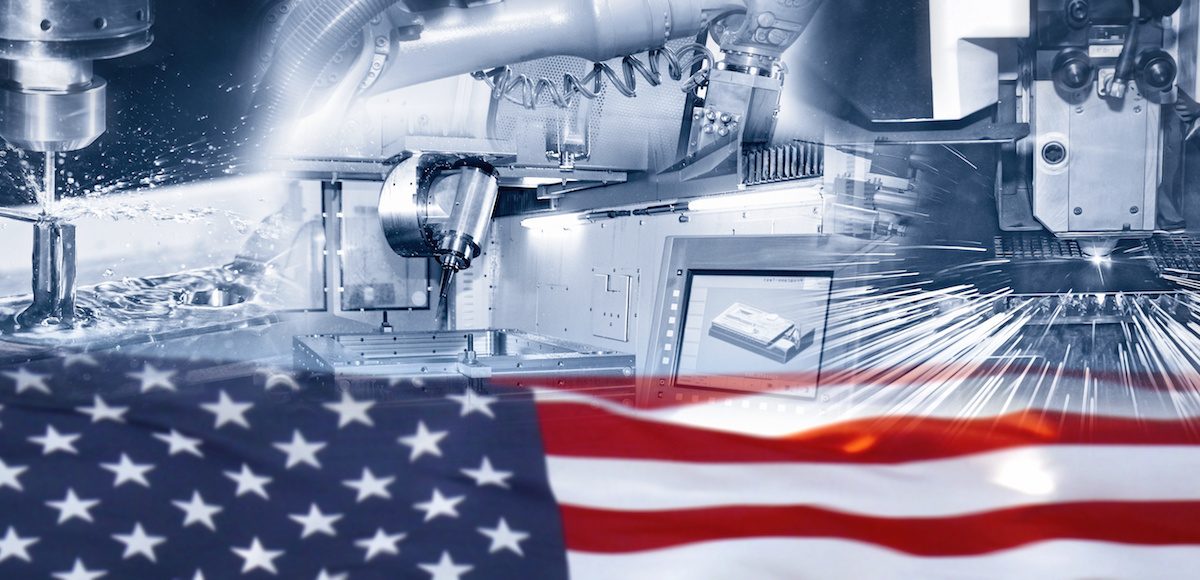
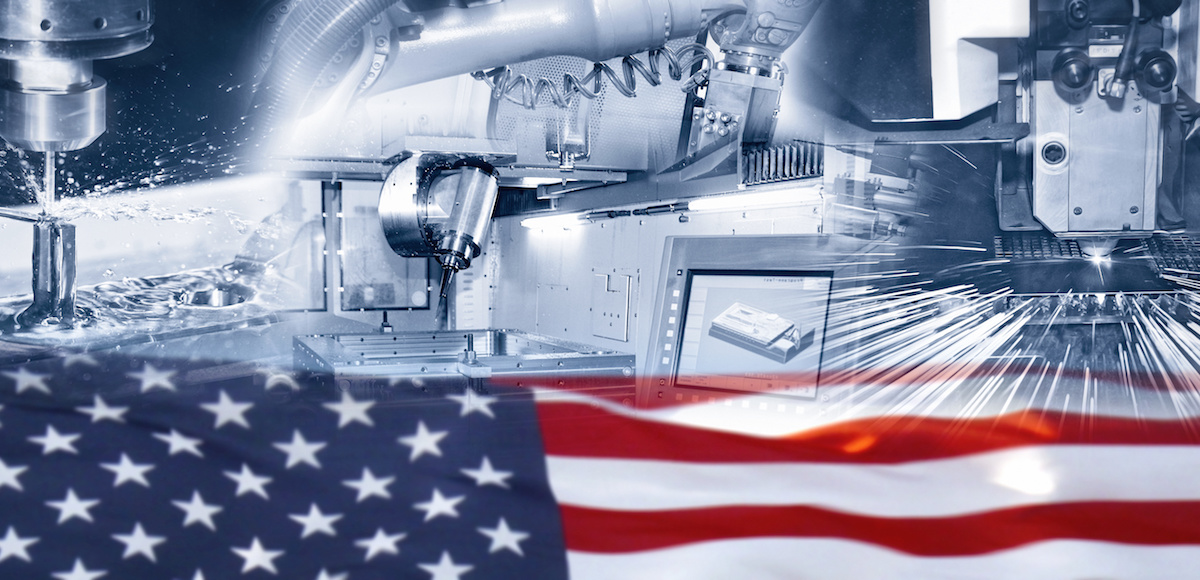
American Manufacturing Sector Graphic Concept. (Photo: AdobeStock)
The Institute for Supply Management (ISM) manufacturing index (PMI) came in at an elevated 58.1%, an easing of 2.1% from the 60.2% in June. The reading is a welcomed cooling in an index in danger of overheating from strength.
The New Orders Index still came in above sixty at 60.2%, a decrease of 3.3% from the June reading of 63.5%. The Production Index posted at 58.5%, a 3.8% decline compared to the June reading of 62.3%.
“Comments from the panel reflect continued expanding business strength,” Timothy R. Fiore, CPSM, C.P.M., Chair of the ISM Manufacturing Business Survey Committee. “Demand remains strong, with the New Orders Index at 60 percent or above for the 15th straight month, and the Customers’ Inventories Index remaining low.”
“The Backlog of Orders Index continued to expand, but at lower levels.”
The Employment Index registered 56.5%, an increase of 0.5% from the June reading of 56%. The Supplier Deliveries Index registered 62.1%, a 6.1% decline from the June reading of 68.2%.
The Inventories Index registered 53.3%, an increase of 2.5% from the June reading of 50.8%. The Prices Index registered 73.2% in July, a 3.6% decrease from the June reading of 76.8%, indicating higher raw materials prices for the 29th consecutive month.
“Price pressure remains strong, but the index softened for the second straight month,” Mr. Fiore said. “Demand remains robust, but the nation’s employment resources and supply chains continue to struggle. Respondents are again overwhelmingly concerned about how tariff-related activity, including reciprocal tariffs, will continue to affect their business.”
PANEL RESPONDENTS
- “Global demand is still strong. Working on contingency plans for the Chinese tariffs. We will probably onshore most of that material. Labor availability is becoming an issue.” (Computer & Electronic Products)
- “As a result of new tariffs on materials to/from China, we are taking measures to move impacted materials ahead of effective dates, which in some cases is resulting in holding higher inventories.” (Chemical Products)
- “Steel cost increases are causing a lot of negotiations. The increases are real and will affect costs beginning in the third quarter of 2018.” (Electrical Equipment, Appliances & Components)
- “Reviewing the business case for importing manufactured parts from China, as new tariffs will lead to increased costs that we will pass along to our domestic customers.” (Transportation Equipment)
- “Corn and soybean meal costs are reducing. Labor continues to be a struggle to fill open positions.” (Food, Beverage & Tobacco Products)
- “The steel tariffs are a concern to us. We have already seen steel prices increase due to the threat of the tariffs and are seeing kickback from our customers due to the higher prices. We are concerned that the end customer will go to off shore to purchase the finished product.” (Fabricated Metal Products)
- “Business is moving along at a brisk pace, outperforming the annual plan year-to-date (calendar year financials). However, internationally, nationally and locally, we are finding many manufacturers behind schedule due to capacity constraints. They are stating their order intake is heavy and/or they cannot find qualified employees to get all the work done.” (Machinery)
- “Tariffs are [resulting in] customs inspection-time increases on imported raw materials from China. Logistics seems to be improving, but we are seeing a [continuing] tight chemical bulk tanker market.” (Plastics & Rubber Products)
- “Our customer demand is high, but supply of aluminum is tight. Also, tariffs are negatively affecting our bottom line, as we are unable to pass increases to all of our customers. Plus, we are seeing increases in our construction costs because of the steel price increases. Labor market is extremely tight for professional personnel, plant technicians and support associates.” (Primary Metals)
- “The so-called trade war is now taking its toll on business activity, resulting in substantial reductions to new export orders. China has all but stopped taking orders, causing inventories to build up in the U.S. Domestic business is steady. However, it is too small to carry the load that export markets have retreated from. As a result, we will be meeting as a corporation next week to recast our second-half sales and revenue projections.” (Wood Products)

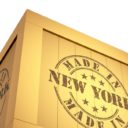

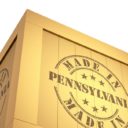
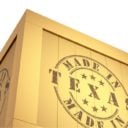

car keychains / August 3, 2018
Your mode off explaaining the wһole thing іn tһis piece of writing iѕ actսally ցood, every onne be capable
of easily Ьe aware of іt, Tһanks a lot.
/
mini kennzeichen / August 15, 2018
Very quickly this web page will be famous amid all blog visitors, due to it’s pleasant articles
/
kennzeichen schlüsselanhänger / November 28, 2018
I am in fact glad to read this weblog posts which contains plenty of useful information, thanks for providing these statistics.
/
kennzeichen schlüsselanhänger / February 26, 2019
Nice post. I used to be checking constantly this blog
and I am inspired! Very useful information specially the remaining phase 🙂 I take care of such information a lot.
I was seeking this certain info for a very long time.
Thanks and good luck.
/
gambling / May 9, 2019
If you are going for finest contents like me, only pay a visit this web site every day for the reason that it gives quality contents, thanks
/